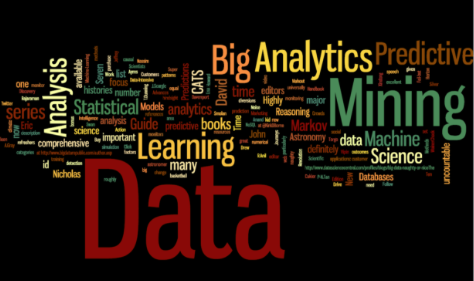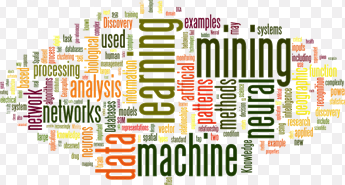
Machine Learning - The Evolution of Algorithms
December 9th, 2014.
“Big Data is at the foundation of all the megatrends that are happening today”

“We are drowning in information and starving for knowledge.” — John Naisbitt

Free Course in Machine Learning
Machine Learning, A View into the Future:
Machine learning is where AI begins to be able to self-learn, network with other AI, learn from youtube & use predictive algorithms to understand the world, variables, events and human beings and their behavior.
ML is therefore self-managed AI, virtual intelligence that learns how to learn, automate and problem-solve. Here is a more traditional definition:
Definition:
- “Machine learning is a type of artificial intelligence (AI) that provides computers with the ability to learn without being explicitly programmed. Machine learning focuses on the development of computer programs that can teach themselves to grow and change when exposed to new data. “
According to DARPA, Machine Learning is:
- “Machine learning – the ability of computers to understand data, manage results, and infer insights from uncertain information”
I personally think machine learning is the one the keys to making a safe transition into the information age. Automation will explode, and AI dashboards will pop up all over the place facilitating the explosion of Big Data that the internet of things will provide, the smart grid. The bottom line is, more change takes place between 2020 - 2035 than in the previous 100 years. The “exponential” progress of AI will then begin to emerge, as the descendant of all this technology craze ushering in the true start of the “information age”.
In a hypothetical future circa 2035, where many fields converge:
- Big Data
- Internet of Things
- Quantum computing
- 3-D Printing
- Nanotechnology
- Social Robotics
- Self-Replicating Artificial Intelligence (SRAI).
Machine learning and AI is at the center of all this, micromanaging most aspects of our lives.
What happens to society? Machine learning is a bit the “brain” or cognitive (in this case computational) power that can help to coordinate these changes, automate society and reduce chaos of information overflow. Not to mention the difficulty human organizations, corporations and the individual will have to adapt to an increasingly complex world.

Different kinds of Algorithms:
examples:
- A clustering algorithm
- surfaces segments of an audience exhibiting certain behaviours. This modelling also helps to group company’s products and brands.
- Propensity modelling
- gauges a customer’s likelihood to buy (lead scoring), whether they have money left to spend with you, how likely they are to convert or unsubscribe.
- A recommendation engine, like Amazon’s
- surfaces other products or services a customer might be interested in.
- Marketing spend analysis
- determines the most successful acquisition and retention methods by looking at how existing customers were caught and kept.
Applications
Early Applications for machine learning include:
- Machine perception
- Computer vision, including object recognition
- Natural language processing[22]
- Syntactic pattern recognition
- Search engines
- Medical diagnosis
- Bioinformatics
- Brain-machine interfaces
- Cheminformatics
- Detecting credit card fraud
- Stock market analysis
- Classifying DNA sequences
- Sequence mining
- Speech and handwriting recognition
- Game playing[23]
- Software engineering
- Adaptive websites
- Robot locomotion
- Computational advertising
- Computational finance
- Structural health monitoring
- Sentiment analysis (or opinion mining)
- Affective computing
- Information retrieval
- Recommender systems
Further Reading:
- Adaptive control
- Automatic reasoning
- Cache language model
- Computational intelligence
- Computational neuroscience
- Cognitive science
- Cognitive modeling
- Data mining
- Explanation-based learning
- Hidden Markov model
- List of machine learning algorithms
- Important publications in machine learning
- Multi-label classification
- Multilinear subspace learning
- Pattern recognition
- Predictive analytics
- Robot learning
- Developmental robotics

Interesting intellectually but not what I dream at night
I’ll follow it though, ’cause I’m curious and like supporting ‘friends’!
LikeLike
Thanks! I appreciate it But it begs the question, what do you dream of at night?
But it begs the question, what do you dream of at night?
LikeLiked by 1 person
Hmm I’d rather … ahem … not incriminate myself…😉
LikeLike
Well I’m obliged to say sweet dreams then
LikeLiked by 1 person
Oh why… thank you! Same to you…
LikeLike